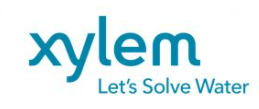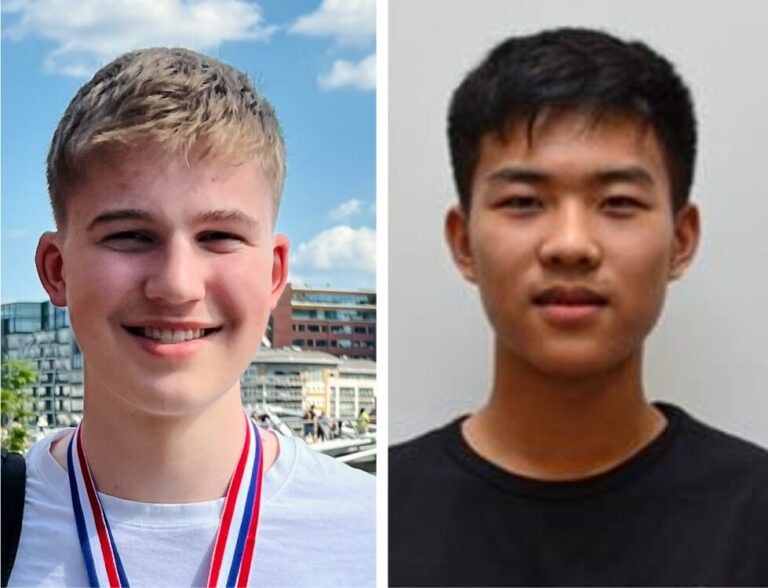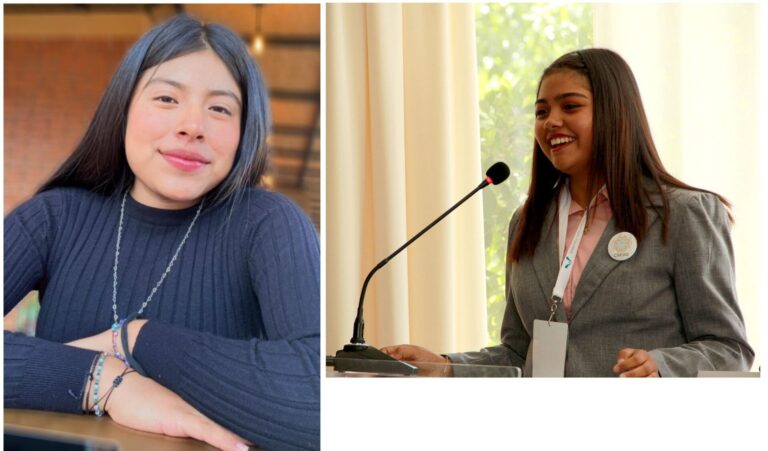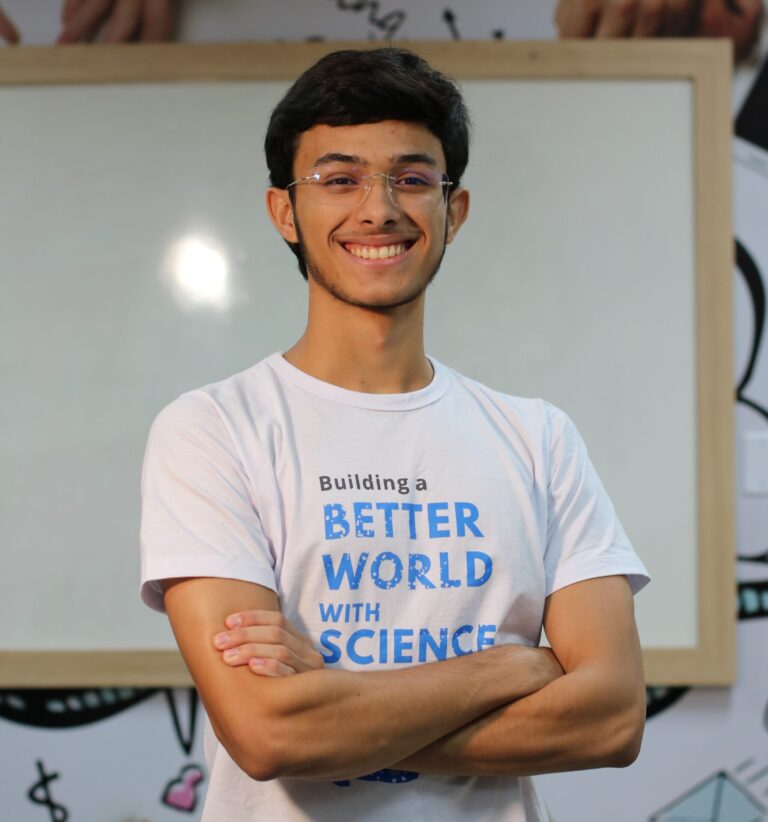heading
Stockholm Junior Water Prize winners
Over the years, many ideas that started as Stockholm Junior Water Prize projects have proved to be important innovations that changed the lives of both the participants and their communities. Finalists have testified that the competition sparked their interest in science and influence their career choices.
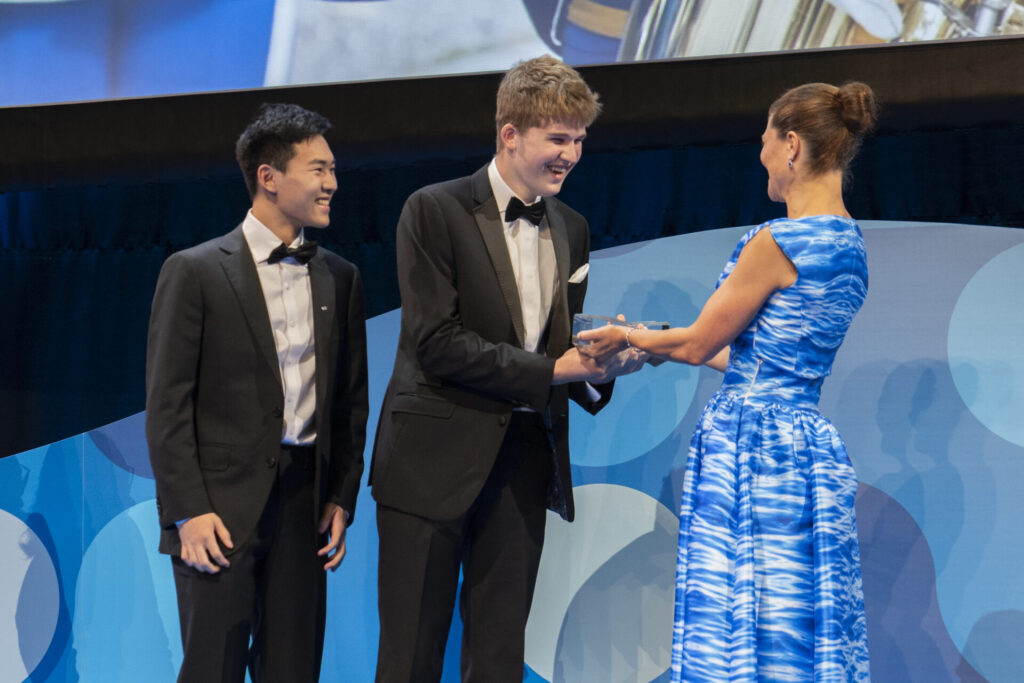
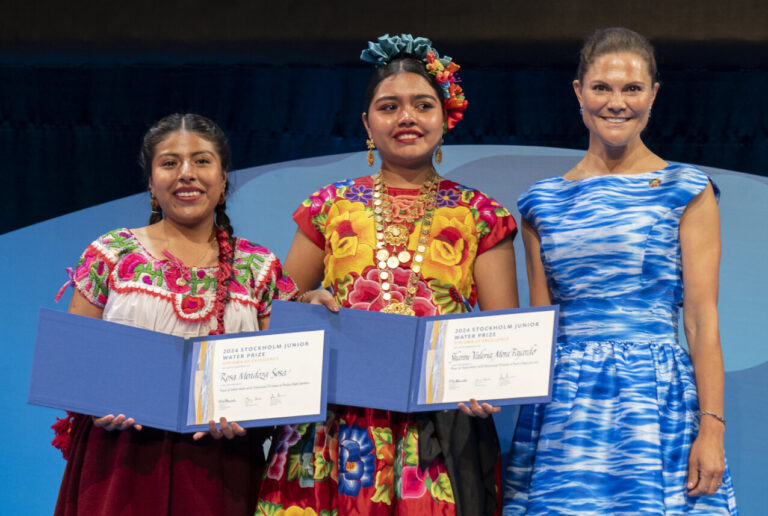
Be the next Stockholm Junior Water Prize winner
If you have a project that could improve access or quality of water, join your national competition! You could be the next Stockholm Junior Water Prize.
Enter the competitionWinners 2024
Stockholm Junior Water Prize
Christopher Whitfeld and Wenqi (Jonathan) Zhao from United Kingdom receives the prestigious Stockholm Junior Water Prize 2024 for their work on PFAS pollution in the Thames Basin. In their research, Christopher and Jonathan, focusing on the Thames Basin in the UK, developed a geospatial neural network, predicting PFAS values to within 10 percent of experimentally validated values
The Jury noted that the winners found “a way to take data and turn it into actionable knowledge. [They have] identified PFAS hotspots using machine learning, field tested their results, developed a cost-effective filtration system, and reached out to local governments and environmental organizations to raise awareness.”
Diploma of Excellence
The Diploma of Excellence was awarded to Shanni Valeria Mora Fajardo and Rosa Mendoza Sosa from Mexico for their work on how to reuse inked water with homemade filtration to produce veggie gardens.
People’s Choice Award
The People’s Choice Award went to Manoel José Nunes Neto from Brazil.
Winners 2024
Previous winners
2023
Naomi Park from USA received the 2023 Stockholm Junior Water Prize for her project that addresses “simultaneous removal of ocean carbon removal and soluble oil-in-water contaminants through the creation of a Multi-Functional Remediation Framework (MF-RF).”
2022
Annabelle M. Rayson from Canada received the prestigious 2022 Stockholm Junior Water Prize for her research on how to treat and prevent harmful algae blooms.
2021
Eshani Jha from the USA received the Prize for her research on how to remove contaminants from water.
2020
Hiroki Matsuhashi and Takuma Miyaki, both from Japan, received their prize for their innovation to prevent soil erosion.
2019
Macinley Butson, Australia, won for having developed a new, novel and innovative ultraviolet sticker to accurately measure large UV exposures for solar disinfection of water.
2018
Caleb Liow Jia Le and Johnny Xiao Hong Yu, Singapore, won the Stockholm Junior Water Prize for having produced reduced graphene oxide from agricultural waste products, a material that can be used to purify water.
2017
Rachel Chang and Ryan Thorpe, United States won the Stockholm Junior Water Prize for having created a novel approach to rapidly and sensitively detect and purify water contaminated with E. coli, Shigella, Cholera, and Salmonella.
2016
Sureeporn Triphetprapa, Thidarat Phianchat, and Kanjana Komkla, Thailand, won the Stockholm Junior Water Prize for their water retention device that mimics the water retention of the Bromeliad plant.
2015
Perry Alagappan, United States, won the Stockholm Junior Water Prize for having invented a method that uses nanotechnology to remove electronic waste from water, the product of his research experiments with support from the members of the Barron Lab of Rice University, Houston, Texas.
2014
Hayley Todesco, Canada, won the Stockholm Junior Water Prize for having invented a method that uses sand filters to treat oil contaminated water and recover water for reuse.
2013
Naomi Estay and Omayra Toro, Chile won the Stockholm Junior Water Prize for their work on how living organisms can help clean oil spills in extremely low temperatures.
2012
Luigi Marshall Cham, Jun Yong Nicholas Lim and Tian Ting Carrie-Anne Ng, Singapore, won the Stockholm Junior Water Prize for their research on how clay can be used in a low cost method to remove and recover pollutants from wastewater.
2011
Alison Bick, United States, won the Stockholm Junior Water Prize for having developed a low-cost portable method to test water quality using a mobile phone.
2010
Alexandre Allard and Danny Luong, Canada, won the Stockholm Junior Water Prize for their research on readily available bacteria able to degrade polystyrene and decontaminate polystyrene-contaminated water.
2009
Ceren Burçak Dag, Turkey, won the Stockholm Junior Water Prize for having developed a high tech solution that used PVDF, a smart material with piezoelectric properties, to transfer the kinetic energy of raindrops into electrical energy.
2008
Joyce Chai, United States, won the Stockholm Junior Water Prize for having developed a novel technique to quantifying the potential toxicity of silver nanoparticles to the world’s water sources and the environment, and in doing so repudiating the assertion that consumer products that contain nanosilver are more reliable and less environmentally hazardous than alternatives.
2007
Adriana Alcántara Ruiz, Dalia Graciela Díaz Gómez and Carlos Hernández Mejía, Mexico, won the Stockholm Junior Water Prize for their project on the elimination of Pb(II) from water via bio-adsorption using eggshell.
2006
Wang Hao, Xiao Yi and Weng Jie, China, won the Stockholm Junior Water Prize for their originality, ingenuity and tenacity in their use of low-cost, ecologically friendly technology to restore a polluted urban river channel.
2005
Pontso Moletsane, Motebele Moshodi and Sechaba Ramabenyane, South Africa, won the Stockholm Junior Water Prize for their revolutionary solution to minimize the need for water in small-scale irrigation. They developed a low-current electric soil humidity sensor which uses light detection to control water pipe valves and improve irrigation efficiency.
2004
Tsutomu Kawahira, Daisuke Sunakawa and Kaori Yamaguti, Japan, won the Stockholm Junior Water Prize for the development and application of an environmentally friendly organic fertiliser for the Miyako Island. The method is applicable to many places around the world.
2003
Claire Reid, South Africa, won the Stockholm Junior Water Prize for an innovative, practical, easily applicable technique for planting and successfully germinating seeds in water-scarce areas to improve rural and peri-urban livelihoods.
2002
Katherine Holt, United States, won the Stockholm Junior Water Prize for research that looked at how foreign species could be introduced to benefit the Chesapeake while preserving the Bay’s native oyster species and meeting national environmental goals.
2001
Magnus Isacson, Johan Nilvebrant and Rasmus Öman, Sweden, won the Stockholm Junior Water Prize for their innovative and relevant research on the use of natural materials to remove metals in leachate from landfills.
2000
Ashley Mulroy, United States, won the Stockholm Junior Water Prize for a contemporary project that investigated how inefficient waste water treatment processes can lead not only to antibiotic contamination in American waterways, but also to progressive resistance among harmful bacteria to those same antibiotics that once controlled them.
1999
Rosa Lozano, Elisabeth Pozo and Rocío Ruiz, Spain, won the Stockholm Junior Water Prize for an innovative project that used sea urchins, starfish and sea cucumbers to measure the effectiveness of an EU beach protection program on Spain’s western Mediterranean coast.
1998
Robert Franke, Germany, won the Stockholm Junior Water Prize for his design of the Aquakat, a solar-powered, flow-through reactor for the treatment of industrial wastewaters.
1997
Stephen Tinnin, United States, won the first international Stockholm Junior Water Prize for having investigated the correlation between the reproductive rate of sea urchins and water pollution.
1996
Maria Bergström, Katarina Evans, Anette Gustafsson and Elin Sieurin, Sweden, won the Stockholm Junior Water Prize for their project proposing the establishment of a wetland area to reduce the outflow of nutrients into the Baltic Sea, and thereby also creating a recreational park for the enjoyment of the citizens in Nyköping municipality.
1995
Mattias Wiggberg, Sweden, won the very first Stockholm Junior Water Prize for his research of overfertilization and its effect on Lake Kvarnsjön in Södertälje municipality, as well as his proposed actions to mitigate the problems he found. The local government acted on his research.
Welcome to the WaterTank Community!
WaterTank is an online community for Stockholm Junior Water Prize finalists! Participants and alumni can share ideas, seek advice, and stay in touch. Join us and be inspired by the many creative solutions to the world’s greatest water challenges.
Visit WaterTank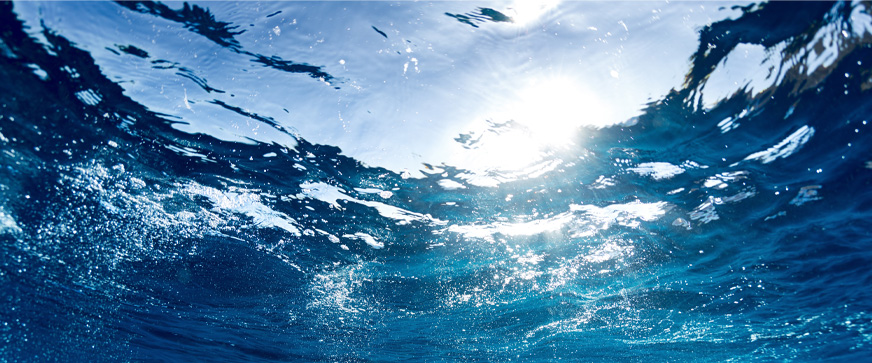
GLOBAL FOUNDING SPONSOR
